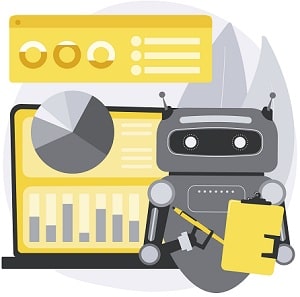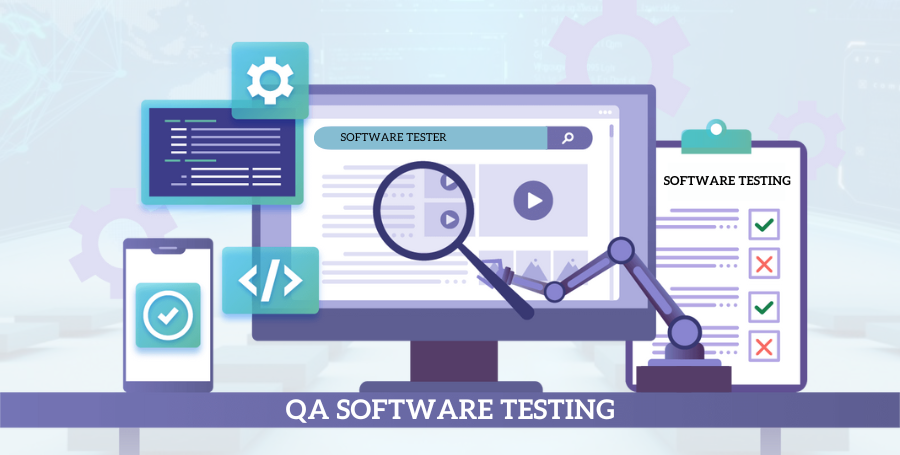RPA stands for Robotic Process Automation. Automation software such as RPA is used to replace repetitive and mundane manual tasks with software in order to increase productivity and reduce costs. RPA is a great solution for businesses looking to automate processes such as call center or back office processing.
RPA software is effective as it eliminates the need for employees to manually input data, which can be a long and tedious process. With an automated solution to this process, RPA is able to use virtual agents to make the process faster, more accurate, and more efficient than ever.
By using RPA Implementation Services, companies can increase productivity, lower costs, and improve the customer experience. The answer to boosting efficiency and production while also enhancing the quality of work is automation.
RPA Automation with Business Procedures

These procedures may be divided into the following four categories: manual tasks, repetitive tasks, complicated activities, and tasks that need the participation of a human being.
RPA Implementation Services provides a platform for end-to-end automation. This helps businesses to increase their scalability and unleash their full potential in terms of resources.
Let us check below what can be automated with RPA.
#1. RPA in The Processing of Payroll
In most cases, the tasks that comprise payroll processing need workers’ salary information, tax data, as well as records of time and attendance, in order to function properly.
- Isn’t it the kind of task that’s boring, prone to errors, and driven by a large transaction volume?
- What if you were to automate the process of generating payroll?
As a result of its ability to eliminate mistakes in both invoices and payments, the American Payroll Association estimates that it can slash payroll processing expenses by as much as 80 percent.
Additional advantages of computerizing payroll procedures include the following:
- Always completely consistent
- No keystroke mistakes
- Notable progress made in terms of processing speed
#2. RPA in The Processing of Invoices
A worker is responsible for extracting the pertinent information from the many invoices, organizing it, and then uploading it into the company’s financial database.
During the processing of invoices, the business deals with a variety of file types, such as .pdf, .doc, and .txt files, as well as emails sent by customers. Processing invoices may become laborious and prone to errors when there are large volumes of varied data to work with.
RPA, or robotic process automation, requires a software robot to be configured before it can be used to automate invoice processing. It compiles invoices, reads data fields in a variety of file formats, and then uploads the information to the company’s financial database.
When invoices are processed with RPA automation, substantial time is saved, and there is no room for mistake in the process. As a direct consequence of this, those resources are now able to devote a higher portion of their attention to strategic responsibilities and offer better value to the firm.
#3. RPA and Digital Transformation
The trends in the market are continually shifting in order to meet the requirements of the clients, which in turn creates a scenario in which it is necessary to upgrade your business models in order to remain competitive.
As the level of competition rises, those in charge of businesses need to have a great awareness of the most recent technological developments and implement those developments whenever they can.
RPA is one kind of technology that assists in meeting the requirements of contemporary enterprises without sacrificing the level of quality achieved.
In conclusion, it seems that RPA has a bright future ahead of it, and organizations that replace their legacy systems using RPA will profit from the general reliability of the technology.
#4. RPA in automation
There are many different types of business operations that may be automated to make an organization more agile. These operations can be found throughout many different departments in an organization.
RPA is able to successfully automate rule-based and standardized processes, which are dependent on actions that are repetitive and systematic.
RPA bots are able to automate procedures like invoicing, error reconciliation, data entry processes, and repetitive decision-making jobs effortlessly thanks to correct programming.
Bottom line
RPA does not provide any challenges when it comes to the deployment of the system. RPA does not need any integration or sophisticated coding methodologies since it is a non-intrusive technology. The robots behave in a human-like manner and only interact with one another at the presentation level.
As a result of the ease with which it may be implemented, RPA Implementation Services contributes to the acceleration of deployment, which, in turn, leads to an increase in productivity and enables organizations to engage with new prospects.








